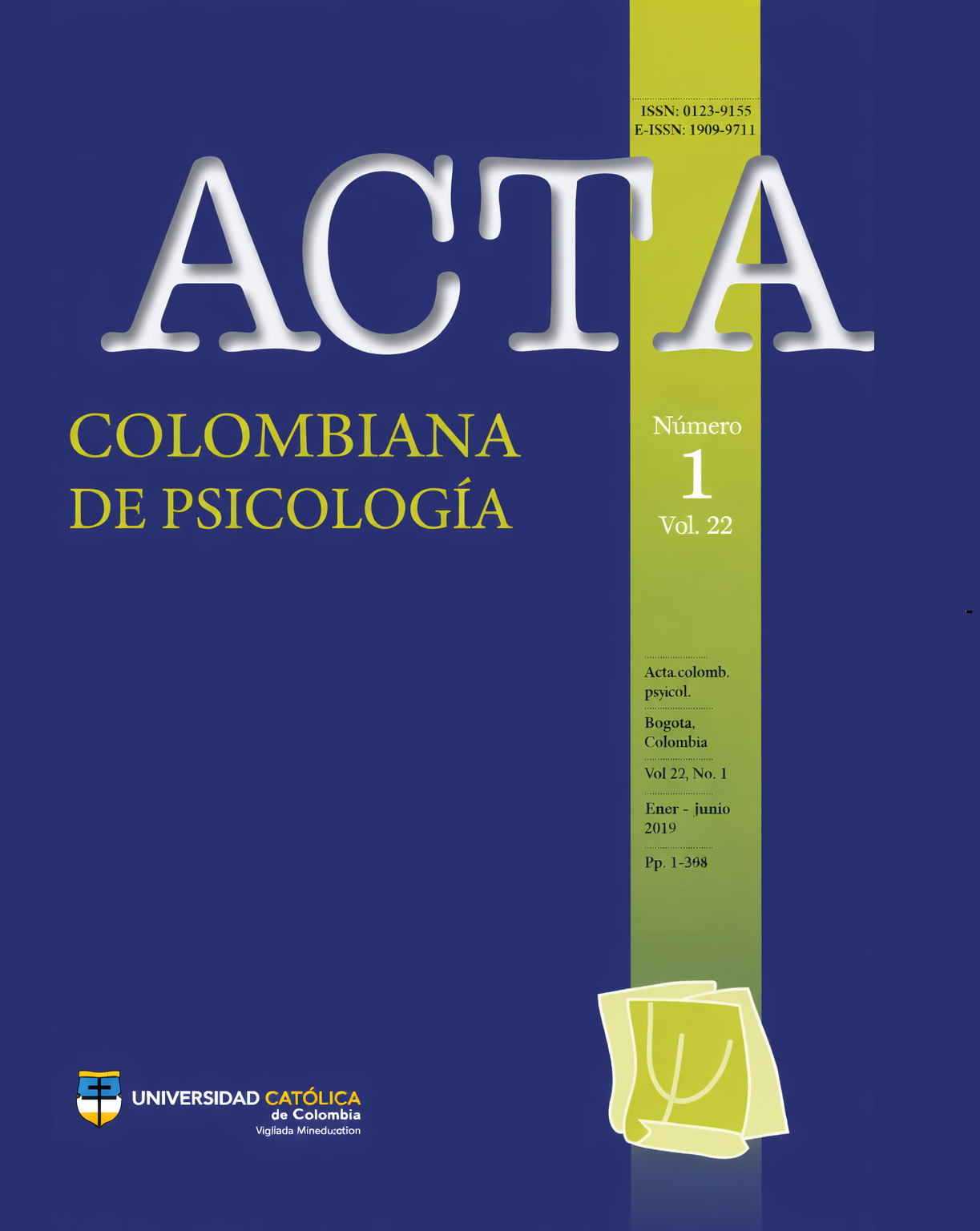Authors who publish in this journal agree to the following terms:
Acta Colombiana de Psicología complies with international intellectual property and copyright laws, and particularly with Article No. 58 of the Political Constitution of Colombia, Law No. 23 of 1982, and the Agreement No. 172 of September 30, 2010 (Universidad Católica de Colombia Intellectual Property Regulation).
Authors retain their copyright and grant to the Acta Colombiana de Psicología the right of first publication, with the work registered under Creative Commons attribution license, which allows third parties to use the published material, provided they credit the authorship of the work and the first publication in this Journal.
Abstract
Six groups of high-school students were exposed to a second-order matching-to-sample task and generalization tests trials using familiar and unfamiliar stimuli as well as a new matching relation. For two groups correct and incorrect matching responses produced the corresponding feedback according to continuous and intermittent schedules, respectively. Correct responses produced feedback and incorrect responses produced blanks and vice versa for other two groups, respectively. Two additional groups were exposed to similar feedback-blanks combinations but participants were instructed about the “meaning” of blanks before training. Extra-relational generalized matching-to-sample performance with either familiar or unfamiliar stimuli was observed after training conditions in which intermittent right-wrong feedback was scheduled, as well as when incorrect matching responses produced blanks and correct responses produced the corresponding feedback. Instructions about the meaning of blanks produced generalized performances slightly higher to those observed after continuous right-wrong feedback, which in turn were similar to performances observed after the uninstructed right-blank feedback combination condition. Results confirm an initial tendency to treat blanks as if they mean right and suggest a common “detachment” processes between intermittent feedback and the wrong-blanks feedback combination.

References
Catania, A. C. (2006). Learning (Interim [4th] Ed.). Cornwallon- Hudson, NY: Sloan Publishing.
González-Becerra, V., & Ortiz, G. (2014). Efectos del tipo de contenido de las descripciones pre-contacto sobre la conducta de discriminación condicional y las descripciones post-contacto. Acta Colombiana de Psicología, 17(1), 11- 23. DOI: 10.14718/ACP.2014. 17.1.2
Hirst J. M., DiGennaro Reed, F. D., & Reed, D. D. (2013). Effects of varying feedback accuracy on task acquisition: A computerized translational study. Journal of Behavioral Education, 22, 1-15. DOI: 10.1007/s10864-012-9162-0
Mangiapanello, K. A., & Hemmes, N. S. (2015). An analysis of feedback from a behavior analytic perspective. The Behavior Analyst, 38, 51-75. DOI: 10.1007/s40614-014 0026-x
Martínez, H., & Ribes, E. (1996). Interactions of contingencies and instructional history on conditional discrimination. The Psychological Record, 46, 301-318.
Ribes, E., & López, F. (1985). Teoría de la conducta: Un análisis de campo y paramétrico. México: Trillas.
Ribes, E., & Torres, C. (2001). Un estudio comparativo de los entrenamientos de primer y segundo orden en igualación de la muestra. Revista Mexicana de Análisis de la Conducta, 27, 385-401.
Rodríguez Pérez, M. E., Silva Castillo, L. H., Bautista Castro, L. R., Peña Correal, T. E. (2015). Efectos de diferentes tipos de entrenamiento en el aprendizaje de una discriminación condicional, Acta Colombiana de Psicología 18(1), 55-67.DOI: 10.14718/ACP.2015. 18.1.6
Serrano, M., Flores, C., Peralta, S., & Martínez, D. (2017). Efectos de la retroalimentación para las respuestas correctas o incorrectas en igualación de la muestra de segundo orden. Revista Argentina de Ciencias del Comportamiento, 9, 1-14.
Serrano, M., García, G., & López, A. (2009). Efectos de la retroalimentación para las respuestas de igualación correctas o incorrectas en la adquisición y transferencia de discriminaciones condicionales. Revista Mexicana de Análisis de la Conducta, 35, 113-134.
Skinner, B. F. (1950). Are theories of learning necessary? Psychological Review, 57, 193-216. DOI:10.1037/h0054367
Spence, J. T. (1970). Verbal reinforcement combinations and concept-identification learning: The role of nonreinforcement. Journal of Experimental Psychology, 85, 321-329. http://dx.doi.org/10.1037/h0029721


































